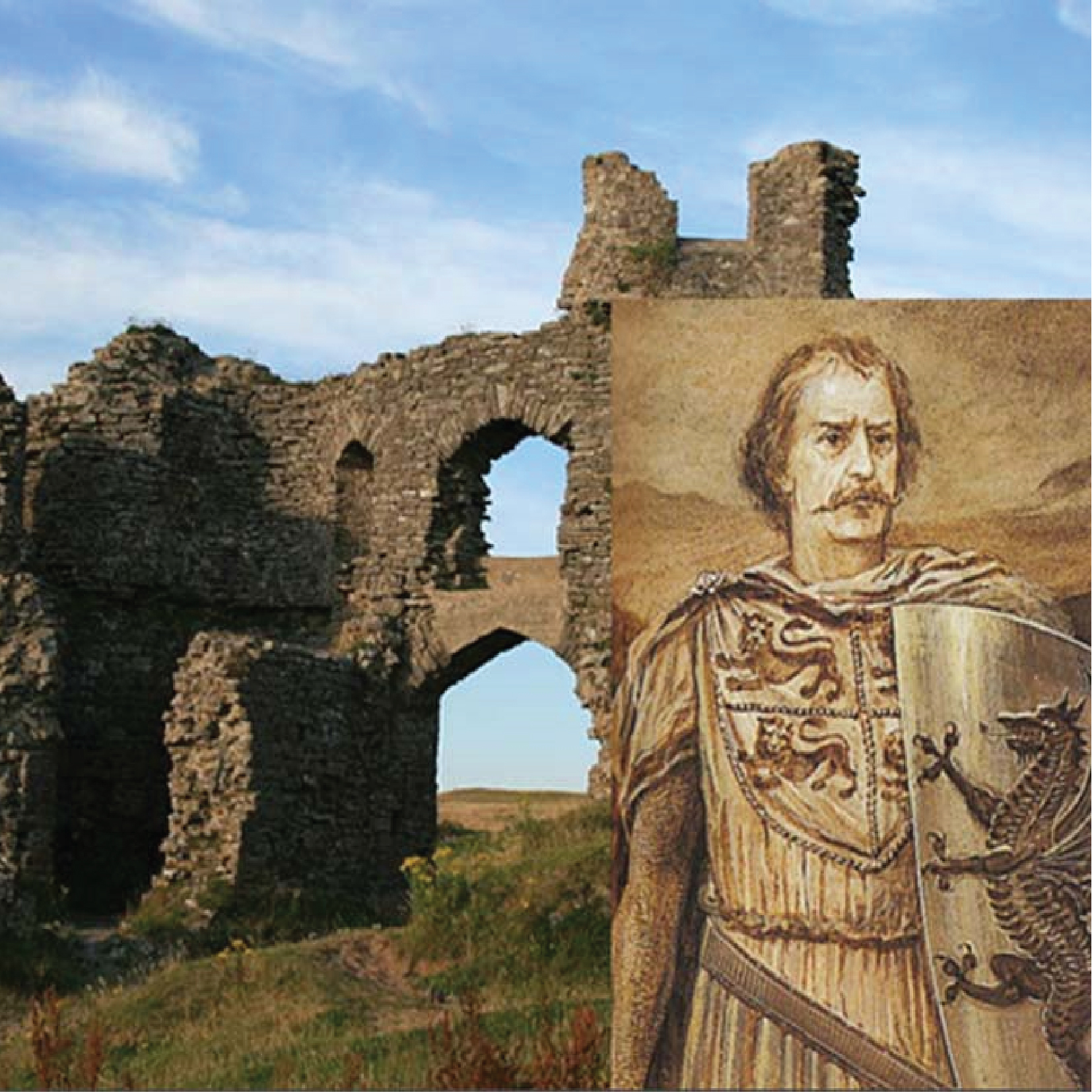TIMELINE HISTORY OF WALES: LLYWELYN AP GRUFFYDD
On 11th December 1282, Llywelyn ap Gruffydd was killed by the English, his death marked the end of his struggle for an independent Wales. Llywelyn’s supremacy in Wales in the late 1260s was aided by the weakened authority of Henry III in England and resulted in the 1267 Treaty of Montgomery.
This treaty marked the high point of Llywelyn’s power. He was recognised as Prince of Wales and enjoyed the homage of most of the other Welsh princes. Llywelyn’s position, however, was not unchallenged. His brother Dafydd who had defected to the English in the early 1260s was involved in a failed assassination attempt against Llywelyn and again defected in 1274. This combined with Edward taking hostage Llywelyn’ s intended bride, Eleanor de Montfort, saw relations between England and Wales deteriorate.
In 1276, Llywelyn refused to pay homage to Edward and Edward declared him a rebel. In July of the following year, Edward, aided by Dafydd, invaded Gwynedd and confiscated the harvest in Anglesey. Unable to feed his army, Llywelyn was forced to accept the resulting Treaty of Aberconwy, in which he retained the title Prince of Wales, but was obliged to share the rule of Gwynedd with Dafydd and other Welsh princes no longer had to pay him homage. Edward then embarked on rebuilding and reinforcing the castles at Builth, Aberystwyth, Rhuddlan and Flint and caused resentment by attempting to impose English law on the Welsh.
In early April 1282, Dafydd abandoned his alliance with Edward and returned to the Welsh cause. He attacked the castles at Hawarden and Rhuddlan and captured and burned Aberystwyth Castle. Open rebellion broke out in Ystrad Tywi and Welsh morale was boosted by further victories at the Battle of Llandeilo Fawr and on Menai Strait. However, Edward continued to invade and Llywelyn began to feel that the Welsh were ill-prepared to continue to hold off Edward’s relentless attacks.
Llywelyn’s mood deepened to despair in June 1982 when Eleanor died shortly after giving birth to their daughter Gwenllian but he decided to support his brother for a final struggle to keep Wales independent. Edward then sent the Archbishop of Canterbury, John Peckham, to negotiate a settlement. However, Llywelyn refused the offer of lands in England to give up his rule in Gwynedd, stating that he would not abandon the Welsh people to the harshness of Edward’s rule and the negotiations broke down.

Llywelyn travelled south to rally support, arriving at Builth on December 11th 1282. Builth Castle at the time was held by the English who had amassed a large force under the command of Edmund Mortimer, to intercept Llywelyn. The Welsh, camped on high ground near Cilmeri, just outside Builth, in preparation for battle, when according to one version, Llywelyn was tricked into attending a meeting with Edmund Mortimer at Aberedw, who deceitfully claimed that he wished to give homage to Llywelyn.
Upon hearing the noise of the English forces engaging the leaderless Welsh army, Llywelyn realised that he had been tricked and immediately headed back with his entourage to assume command. They were ambushed and overwhelmed and when recognized, Llywelyn was instantly killed. Resistance continued under Dafydd, but by June of the following year he had been captured and executed, with his head displayed next to that of Llywelyn on the gate of the Tower of London.



